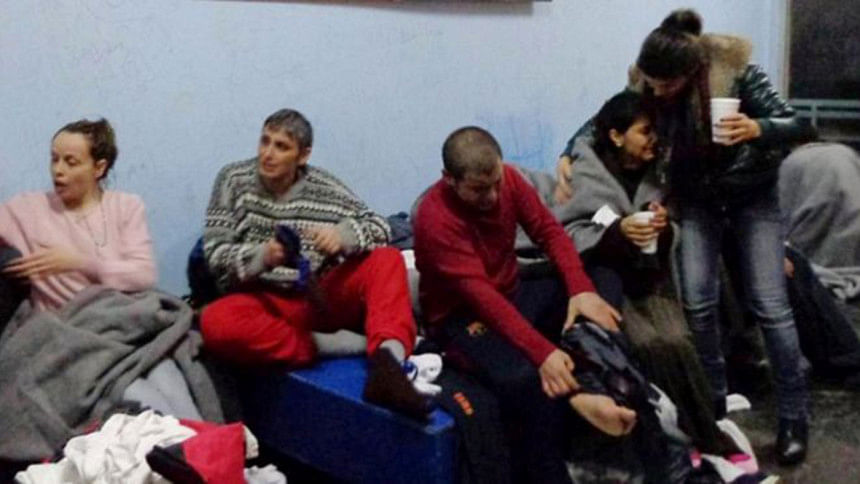44 migrants die in Aegean

At least 44 people, including 20 children, drowned when 3 boats capsized off two Greek islands near the Turkish coast yesterday, coastguards said, marking one of the deadliest days for migrants risking the perilous route to Europe from Turkey.
The tragedy came as German Chancellor Angela Merkel sought to press Turkey to play a bigger part in resolving Europe's escalating migrant crisis.
Germany and Turkey have emerged as crucial players in the biggest migration crisis to rock Europe since World War II, and both Merkel and visiting Prime Minister Ahmet Davutoglu will seek to drive a hard bargain in Berlin where the two countries' cabinets are meeting.
The outcome of the talks is not only important for Merkel, who faces intense pressure at home to impose a cap on Germany's refugee intake, but it will also have resonance across Europe where public opinion is hardening against a record asylum seeker influx.
Despite wintry conditions, thousands of people fleeing war and misery are still embarking on the dangerous journey across the Mediterranean to seek a better life in Europe.
In a stark illustration of the high cost of the voyage, Greek and Turkish coastguards recovered the bodies of 44 migrants -- including 20 children -- whose boats capsized on their way to Greece, officials said yesterday.
The latest incidents bring the number of people killed on the eastern Mediterranean route in the past year to at least 900, said IOM spokesman Joel Millman in Geneva.
The total number of arrivals in Europe by sea rose to about 37,000 in January, more than six times the combined figures for the same month in 2014 and 2015, usually a slow month due to the bad weather.
EU member states have been split about how to end the crisis, with Austria the latest to draw fire when it decided to impose a limit on its asylum seeker intake.
Austrian Foreign Minister Sebastian Kurz said the measure serves as a "wake-up call" to push Europe to find a joint solution.
Merkel has so far resisted demands for a quota, after nearly 1.1 million asylum seekers arrived in Germany in 2015.
She has instead promised a "tangible reduction" in new arrivals, and is counting on international efforts to deliver.
Merkel won some backing from US President Barack Obama, who in a phone call late Thursday pledged to contribute "substantially" at a Syria donors' conference in February.
At the Davos summit of business and political elite, US Secretary of State John Kerry also made a call for a 30-percent hike in international aid for refugees.
But Merkel is well aware of the pivotal role played by Turkey, which not only shares a border with war-torn Syria but is also a launchpad for thousands of migrants.
Merkel will ask Davutoglu to honour a deal with the EU to reduce the number of migrants coming through, as between 2,000 and 3,000 people are still arriving daily in Greece from Turkey despite the November 29 accord.
But the EU has yet to deliver on the deal either, with member states still squabbling over the financing for aid towards the 2.2 million Syrian refugees that Turkey is hosting.
Davutoglu Thursday said he would not even ask about the three billion euros ($3.2 billion) promised by the EU but will demand concrete action instead.
"We are not asking (for) money, we are not negotiating (for) money... For us, it's a humanitarian duty, therefore the problem is not financial assistance," Davutoglu said in Davos.
"We hope the next steps will be concrete steps to address this issue," he said.

 For all latest news, follow The Daily Star's Google News channel.
For all latest news, follow The Daily Star's Google News channel. 



Comments